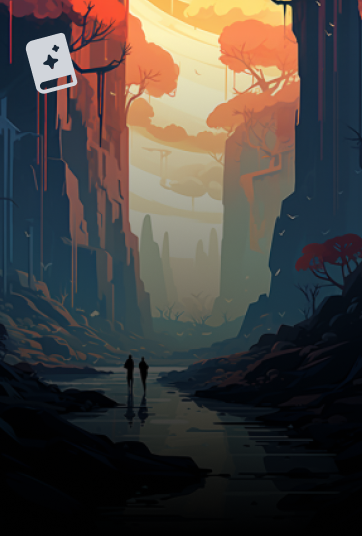
Software
Ratings13
Average rating3.5
Cobb Anderson created the "boppers," sentient robots that overthrew their human overlords. But now Cobb is just an aging alcoholic waiting to die, and the big boppers are threatening to absorb all of the little boppers--and eventually every human--into a giant, melded consciousness. Some of the little boppers aren't too keen on the idea, and a full-scale robot revolt is underway on the moon (where the boppers live). Meanwhile, bopper Ralph Numbers wants to give Cobb immortality by letting a big bopper slice up his brain and tape his "software." It seems like a good idea to Cobb.
Series
Featured Series
4 primary booksWare
Ware is a 4-book series with 4 primary works first released in 1982 with contributions by Rudy Rucker.
Reviews
Popular Reviews
Reviews with the most likes.
I came to cyberpunk from an interesting vector: I discovered it through Marvel's 2099 comic series, of all places, and then watched the Matrix, and only after that became aware of authors like Gibson, Cadigan, and Stephenson. So while I've read a lot of cyberpunk, and have a fondness for it as a genre, it's a patchwork sort of fondness, which is why I'd never heard of this until recently, despite it's role as a primum movens within cyberpunk literature (something that William Gibson talks about in the introduction of the edition I read).
Like a lot of science fiction, the philosophical angle to this one is as important to the plot - robot builder Cobb Anderson goes to Mars, has his body broken down, and gets reborn inside a robot shell. Which sounds straightforward, but Rucker also throws in a lot of questions about identity and self in with that - does the robot Cobb still have an essential “Cobbness” to him, even though there's no physical continuation between the two? Is there a “soul” that can be transferred, even if we can transfer things like memories? Even wider than that, is a person still a person when so many of those essential human qualities (the need to sleep, eat, procreate, the fear of death) are taken away from them? It's heady stuff, and like any good philosopher Rucker doesn't completely answer them as much as lay them before the reader for them to provide their own answer.
When reading Software, I think it's important to remember where and when it's coming from - compared to other novels of its cohort(books like 2010, Foundation's Edge, and the Ringworld Engineers) there's a quantum leap of difference in terms of how the book understands technology and our relationship with it that might cause a modern reader to undervalue how important and influential a book like this would have been.
An amazing, sometimes disturbing read with rather novel insights into the possible direction of “AI” - Although I don't think he was looking at it as AI in our current sense.
The first three books tend to be a tad hard core but worth it. The fourth is less so, with the author exploring the idea of highly advanced alien entities that straddle multiple dimensions and how they might appear gods. Wetware was my favorite by far.
“El alma es el software, ¿sabes? El software es lo que cuenta, las costumbres y los recuerdos. El cerebro y el cuerpo son simple carne, semillas para los tanques de órganos.”
Estos robots no son como los de Asimov, claro que no. ¡Al diablo Asimov y sus malditas leyes! ¿Obedecer a los humanos? ¡Bah!
Tiene algunas cosas divertidas. Si lo comparo con Carbono modificado, por ejemplo, no le encuentro mucho de cyberpunk. La sociedad no es tan “low life” como cabría esperar. Es un libro de robots que ganó el premio Philip K. Dick allá por el 82.
Todavía estoy masticando la posibilidad de continuar con los demás libros. De momento no va.






























